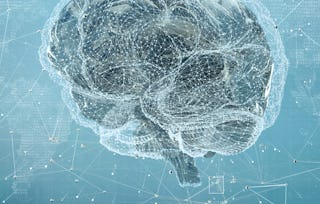What are the ethical considerations regarding the privacy and control of consumer information and big data, especially in the aftermath of recent large-scale data breaches?

Data Science Ethics

1,293 reviews
What you'll learn
Examine the ethical and privacy implications of collecting and managing big data.
Explore the broader impact of the data science field on modern society.
Understand who owns data, how we value privacy, how to receive informed consent and what it means to be fair.
Skills you'll gain
Details to know

Add to your LinkedIn profile
See how employees at top companies are mastering in-demand skills

There are 10 modules in this course
Module 1 of this course establishes a basic foundation in the notion of simple utilitarian ethics we use for this course. The lecture material and the quiz questions are designed to get most people to come to an agreement about right and wrong, using the utilitarian framework taught here. If you bring your own moral sense to bear, or think hard about possible counter-arguments, it is likely that you can arrive at a different conclusion. But that discussion is not what this course is about. So resist that temptation, so that we can jointly lay a common foundation for the rest of this course.
What's included
4 videos4 readings1 assignment1 discussion prompt
Early experiments on human subjects were by scientists intent on advancing medicine, to the benefit of all humanity, disregard for welfare of individual human subjects. Often these were performed by white scientists, on black subject. In this module we will talk about the laws that govern the Principle of Informed Consent. We will also discuss why informed consent doesn’t work well for retrospective studies, or for the customers of electronic businesses.
What's included
4 videos1 assignment1 discussion prompt
Who owns data about you? We'll explore that question in this module. A few examples of personal data include copyrights for biographies; ownership of photos posted online, Yelp, Trip Advisor, public data capture, and data sale. We'll also explore the limits on recording and use of data.
What's included
5 videos1 assignment1 discussion prompt
Privacy is a basic human need. Privacy means the ability to control information about yourself, not necessarily the ability to hide things. We have seen the rise different value systems with regards to privacy. Kids today are more likely to share personal information on social media, for example. So while values are changing, this doesn’t remove the fundamental need to be able to control personal information. In this module we'll examine the relationship between the services we are provided and the data we provide in exchange: for example, the location for a cell phone. We'll also compare and contrast "data" against "metadata".
What's included
7 videos2 readings1 assignment1 discussion prompt
Certain transactions can be performed anonymously. But many cannot, including where there is physical delivery of product. Two examples related to anonymous transactions we'll look at are "block chains" and "bitcoin". We'll also look at some of the drawbacks that come with anonymity.
What's included
4 videos1 assignment1 discussion prompt
Data validity is not a new concern. All too often, we see the inappropriate use of Data Science methods leading to erroneous conclusions. This module points out common errors, in language suited for a student with limited exposure to statistics. We'll focus on the notion of representative sample: opinionated customers, for example, are not necessarily representative of all customers.
What's included
10 videos1 reading1 assignment1 discussion prompt
What could be fairer than a data-driven analysis? Surely the dumb computer cannot harbor prejudice or stereotypes. While indeed the analysis technique may be completely neutral, given the assumptions, the model, the training data, and so forth, all of these boundary conditions are set by humans, who may reflect their biases in the analysis result, possibly without even intending to do so. Only recently have people begun to think about how algorithmic decisions can be unfair. Consider this article, published in the New York Times. This module discusses this cutting edge issue.
What's included
6 videos1 reading1 assignment1 discussion prompt
In Module 8, we consider societal consequences of Data Science that we should be concerned about even if there are no issues with fairness, validity, anonymity, privacy, ownership or human subjects research. These “systemic” concerns are often the hardest to address, yet just as important as other issues discussed before. For example, we consider ossification, or the tendency of algorithmic methods to learn and codify the current state of the world and thereby make it harder to change. Information asymmetry has long been exploited for the advantage of some, to the disadvantage of others. Information technology makes spread of information easier, and hence generally decreases asymmetry. However, Big Data sets and sophisticated analyses increase asymmetry in favor of those with ability to acquire/access.
What's included
5 videos1 reading1 assignment1 discussion prompt
Finally, in Module 9, we tie all the issues we have considered together into a simple, two-point code of ethics for the practitioner.
What's included
3 videos1 reading1 assignment1 peer review
This module contains lists of attributions for the external audio-visual resources used throughout the course.
What's included
5 readings
Instructor

Offered by
Explore more from Data Analysis
 Status: Free Trial
Status: Free TrialDuke University
 Status: Free Trial
Status: Free TrialUniversity of California, Davis
 Status: Preview
Status: PreviewUniversity of Leeds
 Status: Free Trial
Status: Free TrialThe University of Notre Dame
Why people choose Coursera for their career

Felipe M.

Jennifer J.

Larry W.

Chaitanya A.
Learner reviews
- 5 stars
77.57%
- 4 stars
18.40%
- 3 stars
2.47%
- 2 stars
0.61%
- 1 star
0.92%
Showing 3 of 1293
Reviewed on Jul 8, 2020
This is a good course that provides a high-level overview of different aspects of data ethics. It is light i.e. you can complete the course without it being onerous on your time.
Reviewed on Jan 17, 2024
Great overview of the topic with lots of case studies and examples. Would be accessible even to people with a limited data background
Reviewed on Jul 31, 2024
Very interesting course. The explanation has been made very easy with examples and references and the quizzes to test one's understanding at the end of each topic.

Open new doors with Coursera Plus
Unlimited access to 10,000+ world-class courses, hands-on projects, and job-ready certificate programs - all included in your subscription
Advance your career with an online degree
Earn a degree from world-class universities - 100% online
Join over 3,400 global companies that choose Coursera for Business
Upskill your employees to excel in the digital economy
Frequently asked questions
To access the course materials, assignments and to earn a Certificate, you will need to purchase the Certificate experience when you enroll in a course. You can try a Free Trial instead, or apply for Financial Aid. The course may offer 'Full Course, No Certificate' instead. This option lets you see all course materials, submit required assessments, and get a final grade. This also means that you will not be able to purchase a Certificate experience.
When you purchase a Certificate you get access to all course materials, including graded assignments. Upon completing the course, your electronic Certificate will be added to your Accomplishments page - from there, you can print your Certificate or add it to your LinkedIn profile.
Yes. In select learning programs, you can apply for financial aid or a scholarship if you can’t afford the enrollment fee. If fin aid or scholarship is available for your learning program selection, you’ll find a link to apply on the description page.
More questions
Financial aid available,
¹ Some assignments in this course are AI-graded. For these assignments, your data will be used in accordance with Coursera's Privacy Notice.

